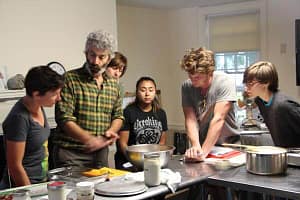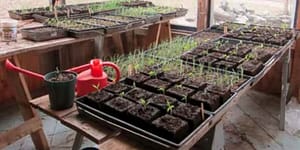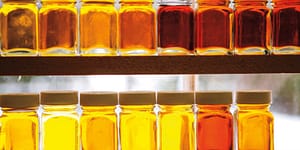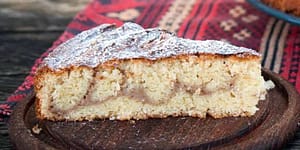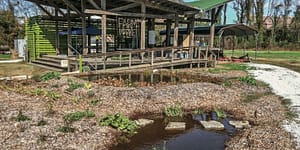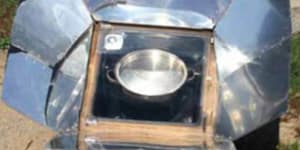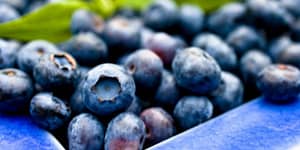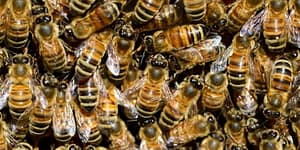Chelsea Green Blog
Community Resilience
New Projects Fuel Sustainability at Chelsea Green
Article by Alex Green. Originally posted on Publishers Weekly. Follow them on Twitter @PublishersWkly and Facebook at @PubWeekly From the content of its books to the paper it prints on, Chelsea Green Publishing is known for its focus on sustainability. But if that word suggests that operations at the Vermont-based publishing house move at a modest…
Read More3 Steps to Start Your Plants Off Right
How you handle your seeds and your practices around seeding is your first chance to get your plants off to a good start and help them achieve their full potential. Ben and Penny Hewitt, authors of The Nourishing Homestead, have developed a three-step process which starts with inoculating the seeds, then sowing them in high-quality…
Read MorePass the Walnut Syrup?
Everyone knows and loves maple syrup, and in some states (like Chelsea Green’s home state of Vermont), it’s big business. However, it’s a widespread myth that maples are the only trees that can be tapped to produce sap, according to Michael Farrell, sugarmaker and director of Cornell University’s Uihlein Forest. Sap can also be collected…
Read MoreMedlar Cream Cake: so simple yet so good
If you’re looking for a simple cake to serve guests, try this medlar cream cake. What’s a medlar? The fruit of the medlar tree, Mespilus germanica, tastes like lightly spiced apple butter scooped soft right out of the russeted skin. The Occidental Arts and Ecology Center in California has a small but significant collection of…
Read MoreThe Bio-Integrated Farm: Authors Shawn Jadrnicek and Stephanie Jadrnicek
Q: Let’s start with the title: What is a “bio-integrated farm?” A: When a component in a farm or landscape—which could be a water garden, greenhouse, or chicken coop—performs seven functions, the component becomes alive, and I call this bio-integration. The concept is derived from Bill Mollison’s definition of permaculture design “…assembling conceptual, material and…
Read MoreSolar Cooker & Dehydrator: How to Design Your Own
In today’s world, nearly everything we use, from phones and computers to cars and kitchen appliances, requires energy derived from fossil fuels. Wouldn’t it be nice to offset some of that energy use by harnessing the renewable power of the sun? Josh Trought, founder of D Acres—an educational center in New Hampshire that researches, applies,…
Read MoreUrban Permaculture: The Social, Cultural, and Ecological Potential
As more people flock to urban areas to live, nowhere are the empowering principles of permaculture more needed and desired. In his latest book, bestselling permaculture author Toby Hemenway (Gaia’s Garden) demonstrates that the same nature-based approach that connects the pieces of our landscape together in harmonious ways applies perfectly to our need for water,…
Read MoreA Mini-Festo for Earth Day – Rebuild the Foodshed
For the days leading up to Earth Day in years past, author Philip Ackerman-Leist runs a Twitter MiniFesto campaign – each day sending out a new tweet designed to spark conversation and pass along some lessons he learned whilst working on his book, Rebuilding the Foodshed. You might also know Philip as the author of…
Read MoreMake Your Own Shoes: When Technology Fails
Matthew Stein’s book, When Technology Fails: A Manual for Self-Reliance, Sustainability, and Surviving the Long Emergency, offers this quick guide to making your own shoes. The book is packed with useful tips for saving money, living a sustainable lifestyle, and surviving in a savage, Road Warrior-like dystopia. We hope that will never happen, but if…
Read MoreGrow Berries in Your Low-Light Urban Space
The following is an excerpt from Fresh Food from Small Spaces by R. J. Ruppenthal. It has been adapted for the Web. A central problem for many of us who garden in the city is a lack of light. This is covered extensively in the vegetable chapters. I mention it again here only to note…
Read MoreRaise Bees in Your Apartment: Urban Apiculture
Not everyone is a fan of bees, but when you get down to their level, you start to appreciate all that they do for us; pollinating the flowers and giving us delicious honey. Beekeeping is a noble profession or hobby to take on as you are providing a habitat for your colony to thrive. But…
Read MoreReplace Your Soap with Soapy Plants
Sick of chemical-filled soaps that leave your hands feeling dirtier than before you washed them? Then we’ve got the project for you! Do it yourself soap with soapy plants! It’s as simple as adding water. The following project is from When Technology Fails by Matthew Stein. It has been adapted for the web. There is…
Read More
